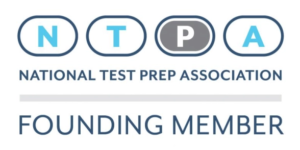ACT Reverts to Old Writing (Essay) Scale of 2-12
Earlier this week, the ACT announced that beginning with the Sept. 2016 exam, it will be reverting to the tried-and-true familiar essay score of 2-12 that was utilized from the inception of the ACT essay until June 2015.
The ACT has finally conceded that the new essay scale of 0-48 raw points that is then scaled and converted to a 36 point score “created confusion” for students, parents, and admissions officers, which would be an understatement. Oddball stories of students receiving a top 0.5% Composite scores but only a 13 out of 36 on the new essay scale were not just occasional, but the norm, and the change was heavily covered by the media and in our blog post from last year. Beginning with the Sept. 2016 ACT essay, we are now back to the old 2-12 scale that we all know and love.
We truly appreciate the ACT’s responsiveness to criticism, since most of the critiques of both the SAT and ACT from the higher education community (e.g. the SAT’s steadfast refusal to release enough practice tests for the New SAT) usually fall on deaf ears.
The new essay format remains the same; only the scale and score calculation are changing.
The new essay format debuted just 9 months ago in Sept. 2015. In the new format, students must directly respond to three pre-authored perspectives on a current social issue, rather than take one side of a binary question. This format stays the same, and the content in our ACT Essay Guide will not change, other than adjusting the scoring scale information.
The new essay format will continue to have four equally-weighted subscores (Ideas and Analysis; Development and Support; Organization and Clarity; and Language Use). Each of the two graders will continue to assign a score of 1-6 on each of the four subscores, which will then be summed and divided by four to create a 12-point score, and rounded up if it ends in 0.5 or 0.75. More information on how to convert Writing scores taken during the 9 months of the 36-point scale from Sept. 2015 to June 2016 is located at this link.
As a reminder, on the 2-12 essay scale, the scores of 10, 11, and 12 combined are only 2% of all scores. The vast, vast majority of the nation gets a 6, 7, or 8 out of 12. Getting to an 8+ (top 16%) is an important and reasonable goal for the majority of test-takers if they write multiple practice essays.
Is the essay going to eventually go away entirely?
Some tutoring firms and high school counselors are of the opinion that the essay should go away for both the New SAT and ACT, saying that it lengthens the exam and increases the cost of taking the test, both of which are true statements. The Writing section is also the section for which ACT’s own internal research has the least reliability / most volatility.
Why does it still exist then?
Some universities that still choose to require the essay may be doing so for a valid (albeit disconcerting) reason. Last year we had a conversation about test prep, the New SAT, and the ACT essay with one of our college admissions officer contacts who works at a top 25 university. Speaking for himself, off the record, he said the following: “Most colleges like ours that still require the essay publicly talk about high-minded ideals of ‘pedagogy’ and ‘seeing the real student,’ but if we’re all being honest, most of the colleges that still require the essay usually require it for one reason and one reason alone: validation. The optional essay section is the only legitimate writing sample from the actual student that is not potentially ghostwritten by parents or fancy independent college counselors. The ACT/SAT essay is, and will always remain, the least important section of the overall score. We look at it as a checkbox of sorts signaling ‘good enough, we get it, you can write.’”
We wholeheartedly agree, and his claims are borne out by the hundreds of students we’ve seen who’ve gotten into great schools with tip-top composite ACT scores but mediocre essays. The US News & World Report Rankings only use the 36-point ACT and 1600-point SAT scales. The essay score is not measured, and as Peter Drucker always says, “what gets measured gets managed.”
With fewer than 20% of schools still requiring the essay, the essay remains a concern only for the students who may apply to those schools that still require it, which tend to be the most highly-ranked universities. For example, well over 70% of the top 30 universities still required the ACT essay as of June 2015, which was when we last did a full audit of the US News Top 50 Universities. One of the most current lists for which colleges still require the essays is this one, but checking with your prospective colleges individually is still warranted in this time of great change as more schools continue to drop the essay requirement each year.
A link to the full ACT press release can be found here.
Questions?
Email us at edison@edisonprep.com or call us at 404-333-8573!







